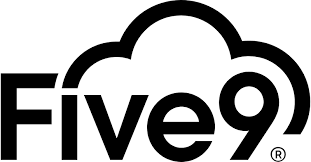|
Provider
|
Features
|
Reviews
|
More Details
|
|---|---|---|---|
 Five9
Five9
|
| 39 Reviews | |
 Genesys
Genesys
|
| 53 Reviews | |
 NICE CXone
NICE CXone
|
| 57 Reviews | |
 DialedIn
DialedIn
|
| 2 Reviews | |
 Convoso
Convoso
|
| 27 Reviews | |
 dialerAI
dialerAI
|
| 3 Reviews |
A predictive dialer uses a pacing algorithm to make the next automatic outbound call during the wrap-up phase of the agent’s previous call, transferring agents to live leads only and eliminating the downtime of manual dialing and waiting for callers to answer.
The difference between predictive and progressive dialers is that predictive dialers do not display any information about a lead before connecting them to a live agent (though lead data can be reviewed enduring an active call) while progressive dialers do show agents key lead information and interaction history before connecting them to a live lead, but only for a preset amount of time.
Predictive dialers vary in cost depending on whether you choose an on-premises phone system or cloud-based hosted predictive dialer software.
Premises-based predictive dialer business phone systems, including the necessary equipment, can easily cost up to $60,000 for 25 seats, whereas cloud-based predictive dialers cost an average of $20-200+ per agent, per month.
There are four types of auto dialers:
- Predictive
- Progressive
- Power
- Preview
While predictive dialers are not illegal, the FCC’s TCPA Compliance Act has set several regulations and limitations to prevent misuse, including:
- Anyone on the Do Not Call registry may not be contacted via predictive dialers
- No healthcare or emergency service providers may be contacted via predictive dialers
- Predictive dialers cannot call cell phone telephone numbers without the number owner’s prior written consent
- If agents don’t speak to the lead within two seconds after the lead picks up, that call must be categorized as “abandoned”
- When predictive dialer calls are marked as abandoned, agents can only play outbound pre-recorded messages, not engage in two-way conversations with leads
As TCPA and other auto dialer regulations vary from state to state, check your local laws to ensure compliance.
Instantly compare call center software.
Bottom line quotes from vetted providers.
“GetVoIP’s comparison guides made it easy to summarize services and make an informed and cost-effective decision.”

Richard J.
Founder & CEO, Fanology Social
